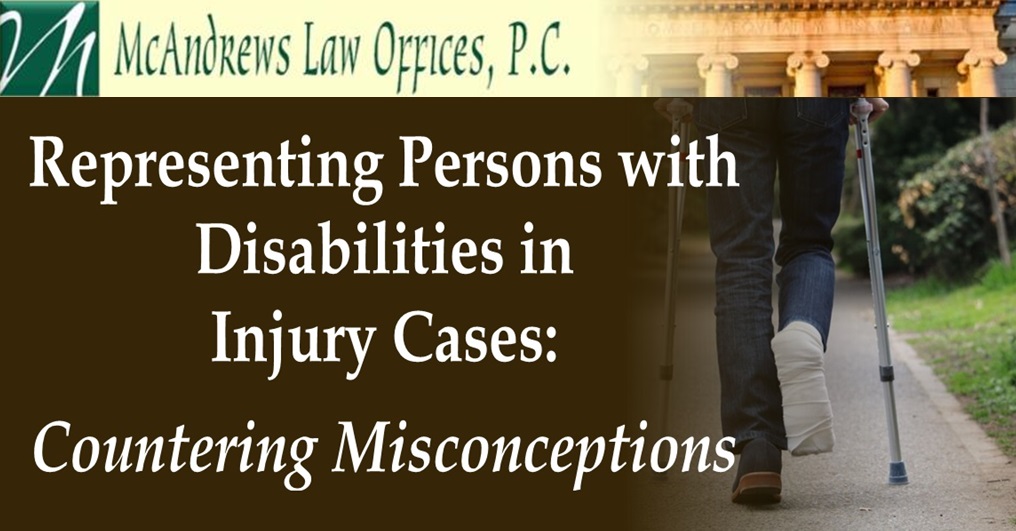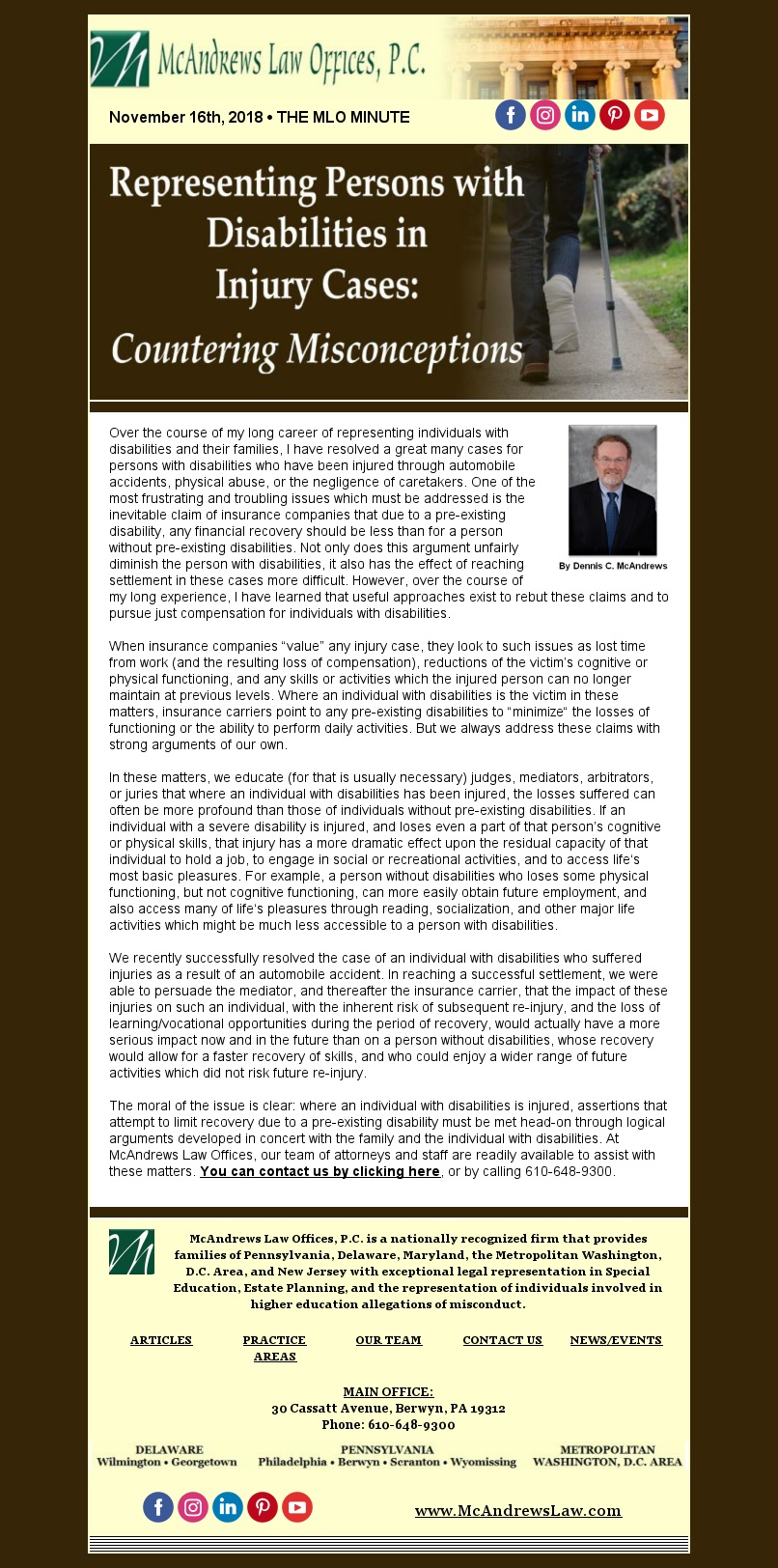November 2018
The MLO Minute, By Dennis McAndrews, Esq.
Over the course of my long career of representing individuals with disabilities and their families, I have resolved a great many cases for persons with disabilities who have been injured through automobile accidents, physical abuse, or the negligence of caretakers. One of the most frustrating and troubling issues which must be addressed is the inevitable claim of insurance companies that due to a pre-existing disability, any financial recovery should be less than for a person without pre-existing disabilities. Not only does this argument unfairly diminish the person with disabilities, it also has the effect of reaching settlement in these cases more difficult. However, over the course of my long experience, I have learned that useful approaches exist to rebut these claims and to pursue just compensation for individuals with disabilities.
When insurance companies “value” any injury case, they look to such issues as lost time from work (and the resulting loss of compensation), reductions of the victim’s cognitive or physical functioning, and any skills or activities which the injured person can no longer maintain at previous levels. Where an individual with disabilities is the victim in these matters, insurance carriers point to any pre-existing disabilities to “minimize“ the losses of functioning or the ability to perform daily activities. But we always address these claims with strong arguments of our own.
In these matters, we educate (for that is usually necessary) judges, mediators, arbitrators, or juries that where an individual with disabilities has been injured, the losses suffered can often be more profound than those of individuals without pre-existing disabilities. If an individual with a severe disability is injured, and loses even a part of that person’s cognitive or physical skills, that injury has a more dramatic effect upon the residual capacity of that individual to hold a job, to engage in social or recreational activities, and to access life‘s most basic pleasures. For example, a person without disabilities who loses some physical functioning, but not cognitive functioning, can more easily obtain future employment, and also access many of life‘s pleasures through reading, socialization, and other major life activities which might be much less accessible to a person with disabilities.
We recently successfully resolved the case of an individual with disabilities who suffered injuries as a result of an automobile accident. In reaching a successful settlement, we were able to persuade the mediator, and thereafter the insurance carrier, that the impact of these injuries on such an individual, with the inherent risk of subsequent re-injury, and the loss of learning/vocational opportunities during the period of recovery, would actually have a more serious impact now and in the future than on a person without disabilities, whose recovery would allow for a faster recovery of skills, and who could enjoy a wider range of future activities which did not risk future re-injury.
The moral of the issue is clear: where an individual with disabilities is injured, assertions that attempt to limit recovery due to a pre-existing disability must be met head-on through logical arguments developed in concert with the family and the individual with disabilities. At McAndrews Law Offices, our team of attorneys and staff are readily available to assist with these matters. You can contact us by clicking here , or by calling 610-648-9300.





